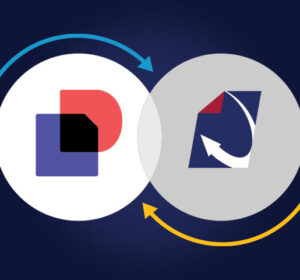Electronic filing systems can help libraries manage information more efficiently and provide learners access from anywhere, at any time.

Libraries have a very important job. They provide access to a knowledge base that helps our society grow smarter and become more innovative. However, maintaining that knowledge base can become problematic if libraries themselves do not embrace innovation. When their texts and other information is stored only in paper format, keeping that documentation organized and accessible can be a huge challenge. Just like any business that involves a great deal of documentation, libraries can also enjoy a plethora of benefits by going digital. By moving their inventory into an electronic filing system, libraries open their doors to a vastly larger audience of learners and make managing their texts much easier.
The Vatican Goes Digital
In recent news, The Vatican digitized 41,000,000 pages of its library’s texts so that the public can have increased access to these documents. The originals are now locked away in a secure, temperature safe environment. Prior to the digitization, a total of 200 people were permitted access to the library’s texts at any one time, but after its complete digitization, its whole archives can be available to an almost unlimited number of users.
Harvard’s Classical Works Become Available Online
Even Harvard’s Loeb Classical Library recently stated its plans for the digitization of all of its ancient Roman and Greek antiquated works. The driving reasons for doing so are increased functionalities such as side-by-side displayed translations; as well as to allow for increased access to these ancient texts by the general public. The digital versions will have a translated version of the original text on its right page, and the actual, original text on its left page.
What Causes The Push For Paperless?
Paper-based systems are inherently hard to manage. Whether it is an office filing system or a library’s bibliographic classification, files and texts become all too easy to misplace when a large number of people are accessing them. Worst of all, when this information is maintained in exclusively paper format, the available audience is severely limited. For these reasons, many libraries and businesses alike are moving to cloud-based electronic filing systems. Here are some of the benefits of making the switch:
- Increased storage efficiency and backup security.
Electronic filing systems are commonly implemented in a cloud environment that requires no additional hardware on your end. Now people can access the information online on their own computers or from in-house library stations. The original files and texts can then be placed in a compact, secure archive that is safe from environmental factors. - Better accessibility for research.
Most libraries contain documents which cannot be checked out and are for reference only. These include academic journals and archived original newspapers. Digitizing these reference texts permits users simultaneous access as well as the versatility to access them from anywhere on the planet.
Who Else Is Moving To The Cloud?
Due to the enormous benefits of going paperless, many businesses around the world are moving to an electronic filing system. Not just for libraries, electronic filing systems can replace traditional paper office filing systems to make the management of business documents much easier. Scan to cloud solutions like DynaFile offer scanning automation tools that let you take an entire department paperless very quickly. From there, all of your files can be managed securely from the cloud, allowing employees to access the information they need from anywhere, at anytime. If you would like to learn more about taking your organization paperless, contact us today for a free demo!


